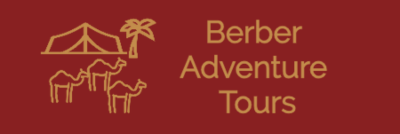From 1100€ pp
Included
Not included
Pick up in Marrakech early, drive through the Atlas Mountains, short visit in Ait Ben Haddou, lunch, meet crew and camels around sunset.
(Depending on weather and fitness, camp might be in different spots):
The trek begins with a nice flat walk towards a mountain range that we will need to cross (around 400 m height difference, but nothing too steep). The side of the mountain has some dunes before turning into rocky slopes.
Once we reach the pass, we will have some spectacular views of the valley beyond. We have to find a safe way down into the valley for the camels and start our descent. We follow the valley for a day and likely run into local nomads with their goat herds. We stop regularly at some wells to stock up on water, wash our hair and if you want your laundry. All along the way, we can find beautiful rocks and flowers, see lizards and tracks of desert foxes.
We cross a big Ouad (a most likely dry river bed) and head into the tiny town of Ramlia, depending on the time of day for coffee, lunch or a snack. If we are lucky, the little bakery is open and we can stock up on some delicious cookies.
We walk along a mountain range, which will give us shelter from the wind if necessary. We cross some more small mountains, cross small dune fields and dry river beds, have a break at a small oasis and end the trip in my favourite dunes of Morocco (as they are pretty untouched by tourism). Here we will be picked up and driven to Merzouga, where we will spend the night.
Return to Marrakech by public bus.
For our level 2 and 2-3 hikes, you should generally be an active person. The terrain varies between sand, rocky plains and some smaller mountains. We will hike between 3-6 hours per day with 1 or 2 breaks.
Good fitness is required for the camel trekking tours. The daily stages are between 4-8 hours with 1-2 breaks.
It also requires a certain amount of mental strength to be out of reach for long periods of time with limited resources.
In times of climate change, this question is difficult to answer. We hope for daytime temperatures between 25-30°C in October and March, 20-25°C in November and February, and 15-20°C in December and January. Night-time temperatures can drop close to freezing point in the winter months.
For camel trekking tours, we will send you a detailed packing list after booking. In general, however, we recommend good hiking boots, a sleeping bag, hiking poles (good for reducing swelling in the hands), long-sleeved/long-legged lightweight clothing and sunscreen. For short tours, only good shoes and sunscreen are necessary.
Depending on which tour you have booked, you will either be picked up in Marrakesh or you will have to make your own way to Merzouga or Zagora. There are several options for this. The Supratours bus runs from Marrakech to Zagora and Merzouga and from Fes to Merzouga. CTM runs from Marrakech to Zagora. Ryanair flies several times a week from Marrakech to Errachidia, and RAM offers a daily flight from Casablanca to Errachidia. From there, you can continue by taxi or we can organise a transfer.
Our hikes attract active and adventurous people of all ages. People who enjoy being outdoors and don’t mind a basic level of comfort. The desert offers plenty of space, so our trips are also suitable for people who normally travel individually or alone, as there are plenty of opportunities to hike away from the others and enjoy the solitude.
To confirm your booking, we require your full name, a few other infos and a deposit of 25% of the total trip price. The remaining balance is due 1 month before the trip.
Yes! We can design an extension that suits your travel style and budget.
We strongly recommend that you take out at least good travel health insurance. Not just for our trip, but for all trips in Morocco and around the world. Make sure that it covers repatriation to your home country in the event of serious problems so that you can be treated at home.
Also consider taking out travel cancellation insurance in case you fall ill or are injured immediately before your trip and have to cancel.
Snakes and scorpions are very rare and mainly active during the summer months. Nevertheless, it is advisable to always wear shoes (or at least flip-flops) when walking on sand. And be careful when lifting stones, as scorpions may be hiding underneath them.
We don’t bring a toilet with us on our hikes, so you’ll have to use the big toilet. Small business is easy, you just hide behind a dune or a bush. For big business, you first dig a hole and then cover it with sand, soil or stones. We collect all toilet paper in plastic bags so that we can dispose of it properly when we return to the city.
WhatsApp us
